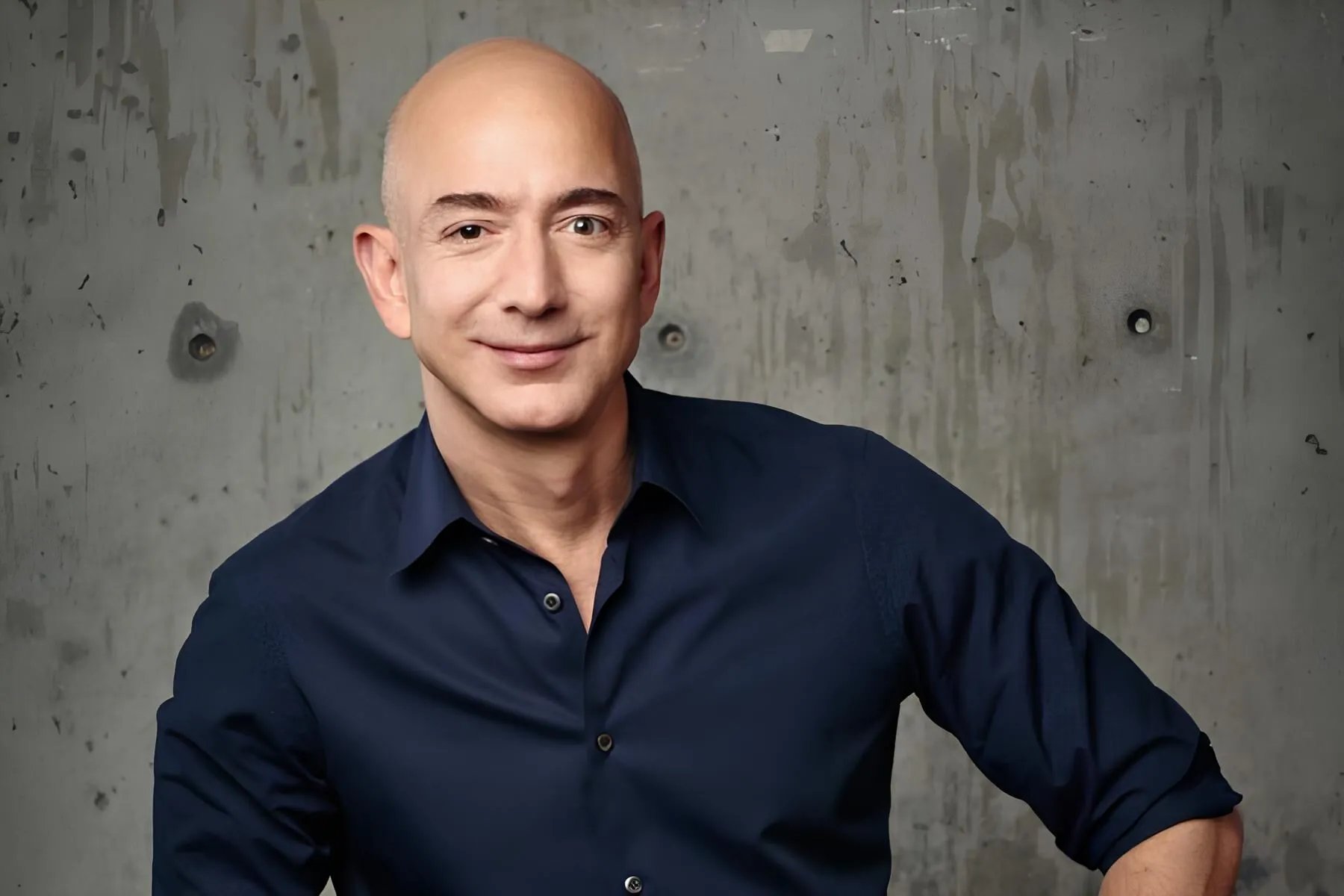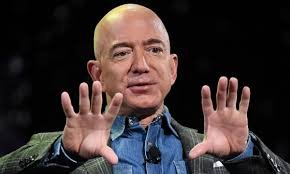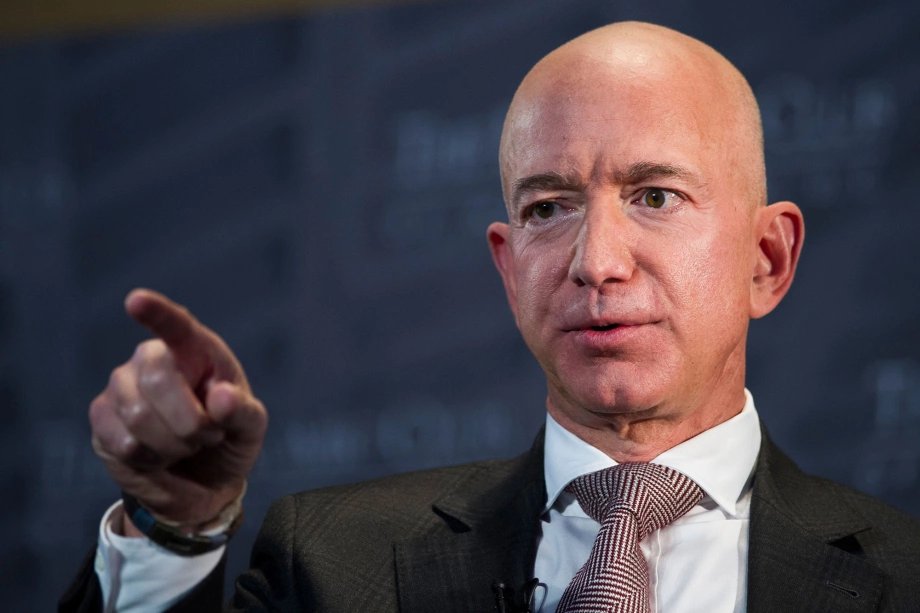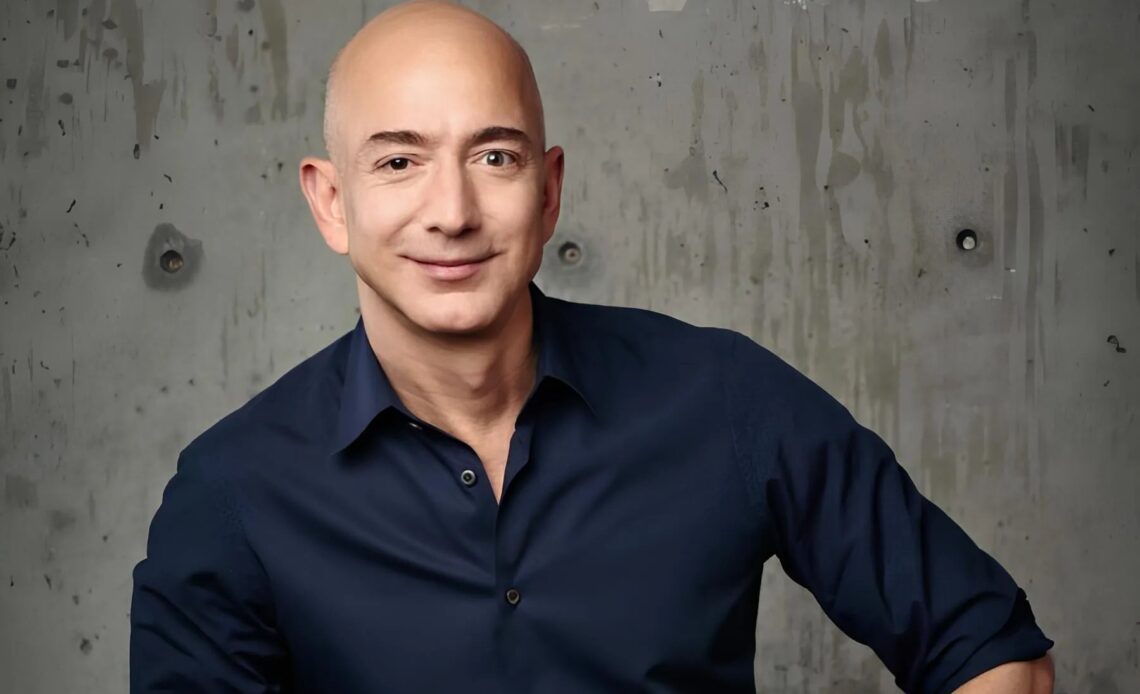When most people think of Jeff Bezos, they picture the tech billionaire behind Amazon, the e-commerce empire that reshaped global retail. But Bezos has set his sights on something far more ambitious than same-day delivery or cloud computing. With his aerospace company, Blue Origin, Bezos isn’t just chasing space tourism or satellite launches—he’s actively working to redefine the future of humanity in space. His vision goes beyond rockets and orbit; it’s about transforming the very framework of space exploration, creating permanent human settlements beyond Earth, and making outer space accessible and sustainable.
This isn’t just a billionaire’s passion project. It’s a long-term strategy to ensure the survival and advancement of civilization itself.
## The Birth of Blue Origin: A Dream Rooted in Childhood

Bezos’s obsession with space began long before his Amazon days. As a child, he was captivated by science fiction and the Apollo missions. His inspiration came from visionaries like Gerard K. O’Neill, a physicist who proposed space colonization through orbiting space habitats. This idea planted a seed in Bezos’s mind: that humans don’t have to be limited to Earth.
In 2000, while Amazon was still in its infancy, Bezos founded Blue Origin with a deceptively modest goal: “to build a road to space so our children can build the future.” For two decades, the company quietly developed technology, rarely revealing its progress. But in recent years, Blue Origin has emerged from the shadows, showcasing reusable rockets, advanced propulsion systems, and a grander vision of colonizing space.
## Bezos vs. Musk: Competing Visions of the Cosmos
The space race of the 21st century isn’t between nations—it’s between billionaires. While Elon Musk’s SpaceX dominates headlines with Mars missions and NASA partnerships, Bezos has taken a different route, focusing on Earth’s orbit and building infrastructure for future generations.
Musk wants to colonize Mars as a backup plan for humanity. Bezos, however, believes we should preserve Earth and move heavy industries to space, using solar power and off-world manufacturing to reduce our environmental footprint. In Bezos’s words: “Earth is the best planet. We must take care of it.”
This philosophical divergence has shaped each company’s trajectory. While SpaceX races to Mars, Blue Origin is building Orbital Reef, a commercial space station in low Earth orbit, and planning missions to the Moon through its Blue Moon lander.
## Reusability and the New Space Economy
One of Blue Origin’s most significant contributions is its focus on reusable rockets, a crucial element in reducing the cost of space travel. The New Shepard suborbital rocket, named after astronaut Alan Shepard, has already demonstrated multiple successful launches and landings. This technology is central to Bezos’s strategy: lowering the cost of access to space and making it more economically viable.
By investing in long-term infrastructure, such as reusable launch systems, modular space stations, and lunar landers, Blue Origin is laying the foundation for a new space economy. This economy will include everything from space tourism and mining to manufacturing and research—all made possible by innovations in reusable technology.
## The Lunar Gamble: Back to the Moon, This Time to Stay

One of Bezos’s most ambitious projects is the Blue Moon lander, designed to deliver cargo—and eventually humans—to the surface of the Moon. Unlike the Apollo missions, which were brief and exploratory, Blue Origin envisions permanent lunar infrastructure, including habitats, research labs, and solar power plants.
In 2023, Blue Origin was selected by NASA as one of the commercial partners for its Artemis program, aimed at returning humans to the Moon. This partnership places Bezos’s company at the forefront of the next lunar chapter, potentially paving the way for a Moon-based economy in the coming decades.
## Orbital Reef: Building Cities in the Sky
The International Space Station (ISS) is aging and nearing retirement. To fill the gap, Blue Origin, in partnership with Sierra Space and other companies, is developing Orbital Reef, a next-generation space station designed for both research and commercial use.
Unlike traditional space stations built solely by governments, Orbital Reef represents a paradigm shift—a mixed-use space business park, capable of hosting private companies, researchers, astronauts, and even tourists. It’s an effort to democratize space, offering access to microgravity environments for pharmaceutical research, biotechnology, manufacturing, and more.
If successful, Orbital Reef could mark the beginning of permanent, sustainable human presence in orbit—a stepping stone toward even more ambitious goals.
## Space Tourism: The First Step Toward the Stars
In 2021, Bezos himself flew aboard New Shepard on its first human flight, alongside civilians and guests. This milestone wasn’t just a publicity stunt—it was a proof of concept. Blue Origin’s suborbital tourism program aims to make space travel more routine, safe, and inspiring.
While tickets are still astronomically priced, the goal is to scale the program to reach a broader audience, much like early airplane travel. As costs decrease and technology improves, space tourism could ignite public interest, drive investment, and train a new generation of space travelers.
## Ethical Frontiers and Planetary Preservation

Bezos’s space ambitions raise important ethical questions. As humans expand into the cosmos, who will set the rules? How do we avoid repeating Earth’s environmental and economic mistakes? Bezos insists that his space ventures are motivated by sustainability, not conquest.
He often speaks of Earth as a precious garden that must be preserved. In his vision, heavy industry and energy production could take place off-planet, while Earth remains a protected zone for life. This idea isn’t just science fiction—it’s a roadmap for balancing technological progress with ecological responsibility.
## The Bezos Legacy: Building for the Long Haul
Unlike many tech entrepreneurs focused on quick disruption, Bezos is playing the long game. He has stated publicly that his work with Blue Origin is the most important project of his life—even more than Amazon. He envisions a future where millions of people live and work in space, supported by a thriving off-world economy.
Bezos’s willingness to fund Blue Origin with billions of dollars from his personal fortune—roughly $1 billion annually—is a testament to his commitment. He understands that the rewards may not come in his lifetime, but the infrastructure he builds today could change the course of human history.
## Criticism and Challenges: A Rocky Road Ahead
Of course, Bezos’s journey to space dominance is not without obstacles. Blue Origin has faced delays, internal tensions, and criticism over its slower pace compared to SpaceX. Some argue that the company’s hierarchical culture and cautious approach hinder innovation.
Moreover, ethical concerns about billionaire space races, income inequality, and private ownership of space resources have sparked public debate. Critics question whether space colonization should be driven by private interests or governed by international cooperation.
Bezos has acknowledged these concerns but remains undeterred. He believes the benefits of space exploration—technological advancement, economic expansion, and environmental relief—far outweigh the risks.
## A Vision Beyond Imagination
Jeff Bezos’s vision for space isn’t just about rockets, tourism, or competition. It’s about redefining humanity’s relationship with the universe. He sees space as more than a destination—it’s the next frontier of civilization. His plans to build cities in orbit, create lunar economies, and preserve Earth’s environment reflect a deeply futuristic and systemic approach.
If Bezos succeeds, we may witness a transformation in how we think about borders, resources, and life itself. Space may no longer be the final frontier—it could become the next home for generations to come.
## Conclusion: Not Just Reaching for the Stars—Changing the Game
Jeff Bezos has made it clear: he’s not content with merely reaching for the stars. He wants to rewrite the rules, lay the foundations, and engineer a future where space is woven into the fabric of human life. Through Blue Origin, he’s building more than just rockets—he’s building infrastructure, opportunity, and vision.
While skeptics question his methods or motivations, there’s no denying that Bezos is pushing the boundaries of what’s possible. As humanity teeters on the edge of a new space age, his bold strategies could very well determine how far—and how wisely—we go.
In the end, the stars may not be so distant after all. Thanks to Jeff Bezos, the cosmic future we once only dreamed about is finally within reach.
